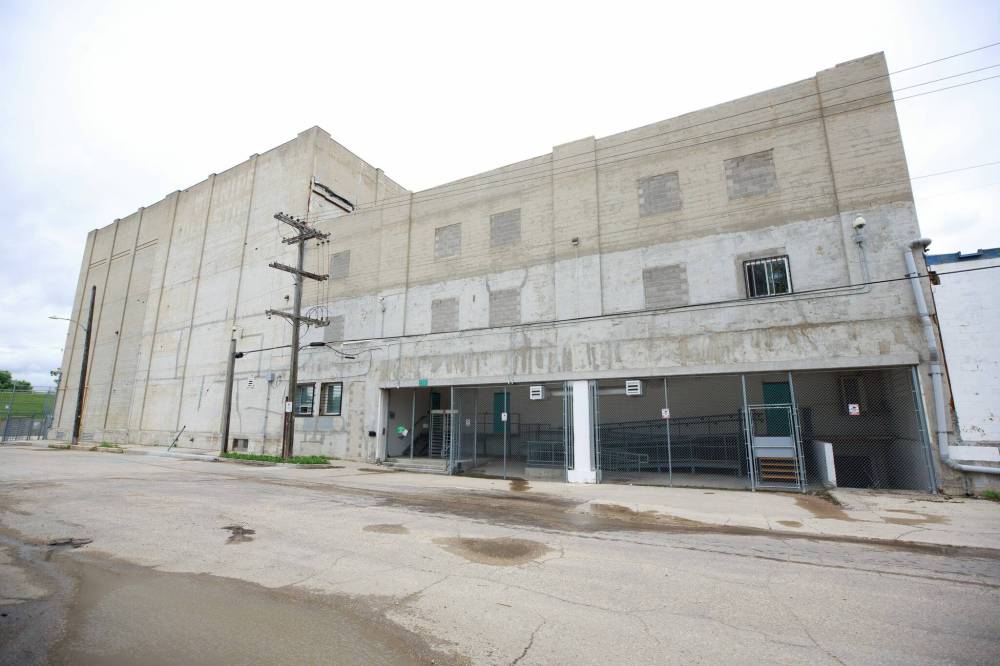Renovated Cold Storage building hits market for $3.5M
Advertisement
Read this article for free:
or
Already have an account? Log in here »
To continue reading, please subscribe:
Monthly Digital Subscription
$0 for the first 4 weeks*
- Enjoy unlimited reading on winnipegfreepress.com
- Read the E-Edition, our digital replica newspaper
- Access News Break, our award-winning app
- Play interactive puzzles
*No charge for 4 weeks then price increases to the regular rate of $19.00 plus GST every four weeks. Offer available to new and qualified returning subscribers only. Cancel any time.
Monthly Digital Subscription
$4.75/week*
- Enjoy unlimited reading on winnipegfreepress.com
- Read the E-Edition, our digital replica newspaper
- Access News Break, our award-winning app
- Play interactive puzzles
*Billed as $19 plus GST every four weeks. Cancel any time.
To continue reading, please subscribe:
Add Free Press access to your Brandon Sun subscription for only an additional
$1 for the first 4 weeks*
*Your next subscription payment will increase by $1.00 and you will be charged $16.99 plus GST for four weeks. After four weeks, your payment will increase to $23.99 plus GST every four weeks.
Read unlimited articles for free today:
or
Already have an account? Log in here »
Hey there, time traveller!
This article was published 31/08/2022 (1194 days ago), so information in it may no longer be current.
A local multi-storey warehouse formerly occupied by a now-defunct cannabis producer may soon be changing hands.
The structure at 422 Jarvis Ave. is better known as the Winnipeg Cold Storage Company Ltd. building, owing to the large lettering on its concrete facade.
Manitoba cannabis cultivator Bonify Holdings Corp. previously operated out of the warehouse, which stretches for five floors, boasts 222,274 square feet of space and spans nearly three acres.

The Winnipeg Cold Storage Building is on the market for $3.5 million. (Mike Deal / Winnipeg Free Press)
The company ran into trouble after Health Canada caught it attempting to sell more than 200 kilograms of unregulated cannabis on the legal market. The federal governing body revoked Bonify’s sales licence in 2019. It was reinstated later that year, but the firm never recovered.
In September 2021, Bonify filed for bankruptcy. Accounting giant Ernst & Young Inc. became the trustee and receiver of its holdings.
One month later, real estate firm Colliers International listed 422 Jarvis Ave. for sale at $5.5 million, said Colliers vice-president Gary Goodman.
Initially, Goodman thought another cannabis company might be interested in purchasing the building, but the site’s production licence had lapsed and would require reinstatement before any such work.
Ultimately, the cannabis-related equipment was sold at auction, and Colliers reduced the sale price to $3.5 million, marketing the building once again as an industrial warehouse.
“A multi-storey industrial building isn’t in demand as it used to be, but this one is quite well-built because it’s all concrete — top to bottom,” Goodman said this week. “It really does show as a very good building. The main floor was completely renovated and modernized to very high standards.”
When Bonify purchased the building in 2013, ahead of the Oct. 17, 2018, legalization of cannabis by the government of Canada, it performed extensive renovations, including replacing the roof and modernizing the lighting and temperature control systems.
The building also features loading facilities and four large freight elevators to transport goods to the upper floors, Goodman said.
Only the building’s first floor is finished; the other four storeys require lighting and heating upgrades.
“I think it’s priced very appropriately for a large building like that that has very usable areas, but other areas that are going to require finishing,” he said.
A potential buyer is working on a conditional sale contract, Goodman said, although he could not provide further details.
While it does not technically have historical status with the City of Winnipeg, the cold storage building is well-known in the North End, said Gordon Goldsborough, president and head researcher with the Manitoba Historical Society.
“It’s conspicuous, definitely, but whether that makes it historic… that’s within the bailiwick of the historical buildings and resources committee,” he said.
The warehouse was built in stages over many years, with the first portion constructed around 1910 and the larger, eastern-facing part (with its trademark lettering) erected in 1940, Goldsborough said.
It has never been nominated for historical status, the City of Winnipeg said.
The Winnipeg Architecture Foundation website describes it as an “enormous and impressive landmark” better defined as a complex than a single building.
Its proximity to the Canadian Pacific railyards was once considered a major business advantage during a complicated period of food transportation and distribution, the foundation said.
Bonify’s illicit cannabis issue is not the only scandal to mar the building’s history.
In 1919, the Manitoba Cold Storage Co., which owned and developed the property, was accused of participating in price fixing by allowing 41/2 tons of eggs to expire while the price was high, according to the foundation.
tyler.searle@freepress.mb.ca



